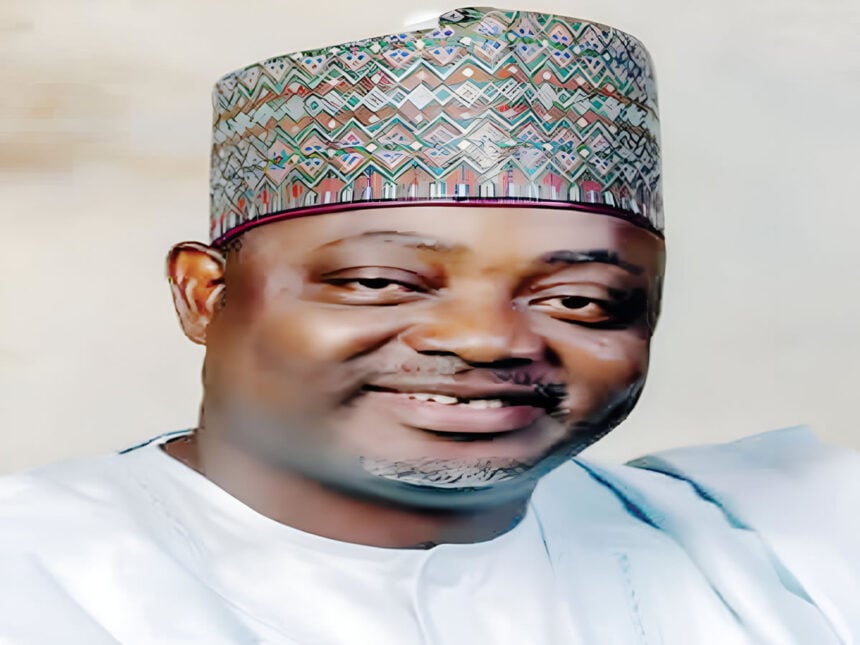The National Orientation Agency (NOA) has released yet another edition of The Explainer, its weekly policy-focused publication. The publication is one out of a number of channels through which the agency has continued to refine how government speaks to its citizens.
This latest edition delves into the ongoing market-driven reforms being rolled out by the Federal Government, and the measures the government has taken that are aimed at revitalizing Nigeria’s economy through liberalization and deregulation.
This edition of the publication explains in simpler terms, the complex economic shifts reshaping Nigeria’s financial landscape, from fuel subsidy removal to exchange rate unification. It explores how these reforms are designed to open the door to private investment, enhance competitiveness, and ultimately stimulate national productivity.
The Explainer, in this edition, goes beyond policy buzzwords to bring clarity about the potential benefits of the reforms such as job creation, increased investor confidence, and better public services. In addition, this edition also addresses public concerns and the immediate challenges Nigerians may face.
Launched in early 2024 as a response to misinformation and growing distrust in public institutions, The Explainer aims to create understanding between the government and the people of Nigeria. Since its launch, each edition has presented an understandable viewpoint on major initiatives under President Bola Tinubu’s Renewed Hope Agenda.
Whether it is energy security, agriculture, health or digital economy reforms, The Explainer is geared towards ensuring that no policy is too complex for the average reader.
For instance, a recent edition focused on the Federal Government’s ambitious plan to stretch Nigeria’s fibre optic infrastructure from 35,000 kilometres to 125,000 kilometres. This plan by the government is to boost connectivity, create a more inclusive digital economy, and unlock innovation at every level of society.
With the understanding that many Nigerians today, NOA has ensured that The Explainer is accessible online. Readers can access it through NOA’s official website or engage with it on platforms like Facebook, Instagram, and WhatsApp, ensuring broad accessibility and interactivity.
The editorial team is led by Editor-in-Chief, Mallam Lanre Issa-Onilu, who is supported by a team of journalists, researchers, and digital creatives. Their mission is to make policy content crystal clear and engaging. The Explainer uses bite-sized explanations and smart visuals to empower Nigerians to ask questions, join the conversation, and hold their leaders accountable.
Response to the publication has been positive. Daily Trust, one of Nigeria’s leading newspapers, praised the newsletter as central to NOA’s reorientation agenda, describing it as “the go-to hub for all government policies.” The Nigeria Union of Petroleum and Natural Gas Workers (NUPENG) commended The Explainer for raising public awareness on critical safety issues, like the dangers of scooping fuel from fallen tankers. Meanwhile, Wale Ojo-Lanre, Director-General of the Ekiti State Bureau of Tourism Development, called it “an invaluable resource” that simplifies complex policies and makes them accessible to everyday Nigerians.
But The Explainer is just one spoke in NOA’s ever-expanding communication wheel. To reach citizens where they are (whether in markets, schools, or digital spaces), NOA has rolled out several transformative initiatives. One of these is the Mobiliser app. Launched in March 2024 in partnership with the Ministry of Information, the app turns smartphones into civic engagement tools. Users can report crimes anonymously via the “Say Something” feature, stay informed through a curated newsfeed, and even win airtime by answering educational quizzes.
Another initiative is CLHEEAN, an AI platform. CLHEEAN stands for Crime, Lawlessness, Health, Education, Environment, Abuse, and Nationalism. It delivers real-time, accurate information on critical national issues such as environmental policy or health information in local Nigerian languages.
To complement its mobile and AI efforts, NOA also launched an interactive, AI-powered website. It features AI chat assistants for real-time policy questions, The Curator, an AI engine that manages the country’s demographic data and virtual hackathons, engaging the brightest minds at home and abroad. The platform is designed not just to inform, but to immerse citizens in Nigeria’s story-past, present, and policy-future.
There have been on-the-ground campaigns across the country by NOA teams. These teams have been engaging in sensitisation campaigns on everything from human rights and tax reform to security awareness and the dangers of get-rich-quick schemes. These efforts have involved roadshows, community forums, and interactive school sessions, ensuring messages penetrate from boardrooms to backstreets.
In partnership with the education sector, NOA is working to embed citizenship studies into the school curriculum. The aim is simple is to instill national values, ethics, and civic pride from a young age. The agency is working to ensure the next generation understands not just their rights, but their responsibilities.
In January 2024, NOA joined forces with the Voice of Nigeria to combat misinformation and promote authentic Nigerian narratives. This strategic media partnership ensures that stories about Nigeria are told with accuracy, balance, and pride, helping to restore trust in institutions.
These initiatives show that NOA is not just in the business of orientation, but rewriting history on how governments can communicate with their people.
READ ALSO: CSO tasks NOA DG on national gender policy implementation






